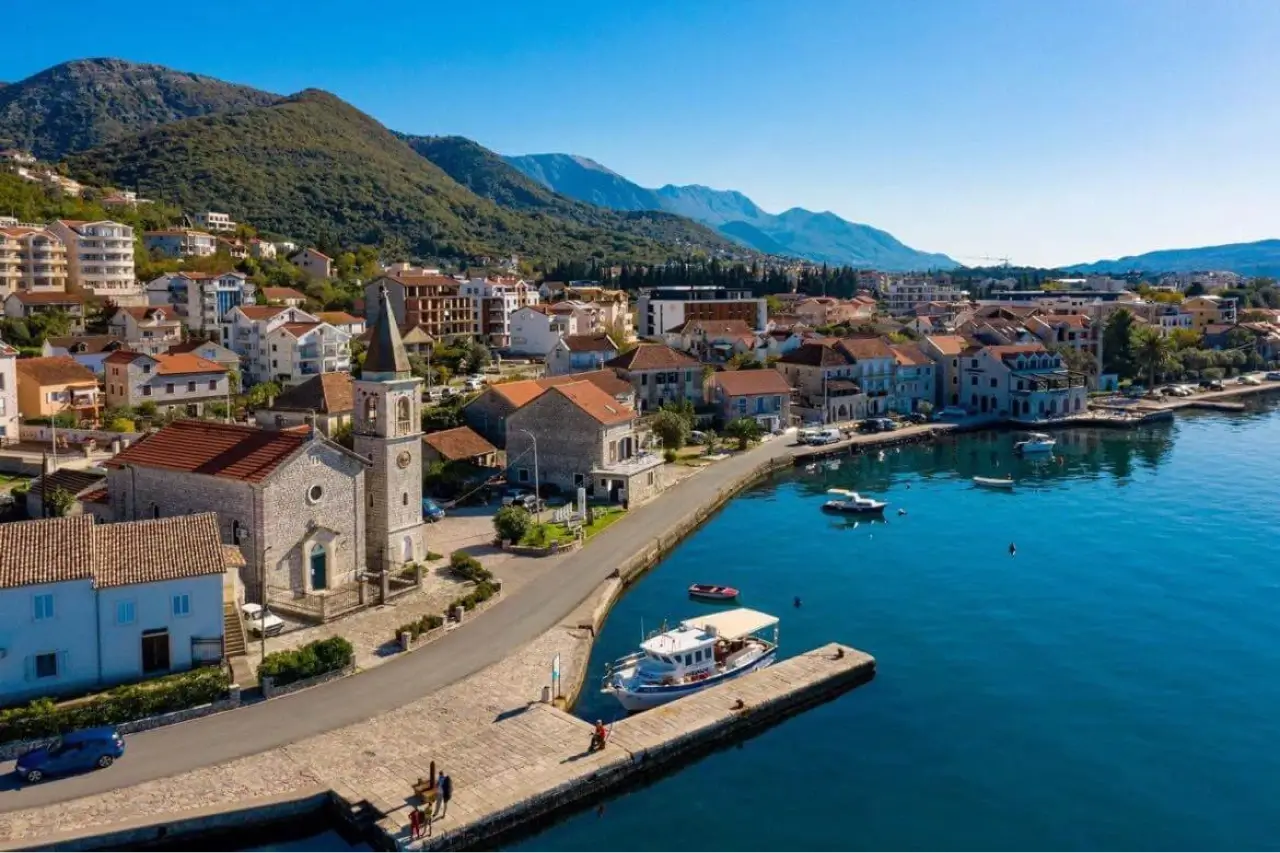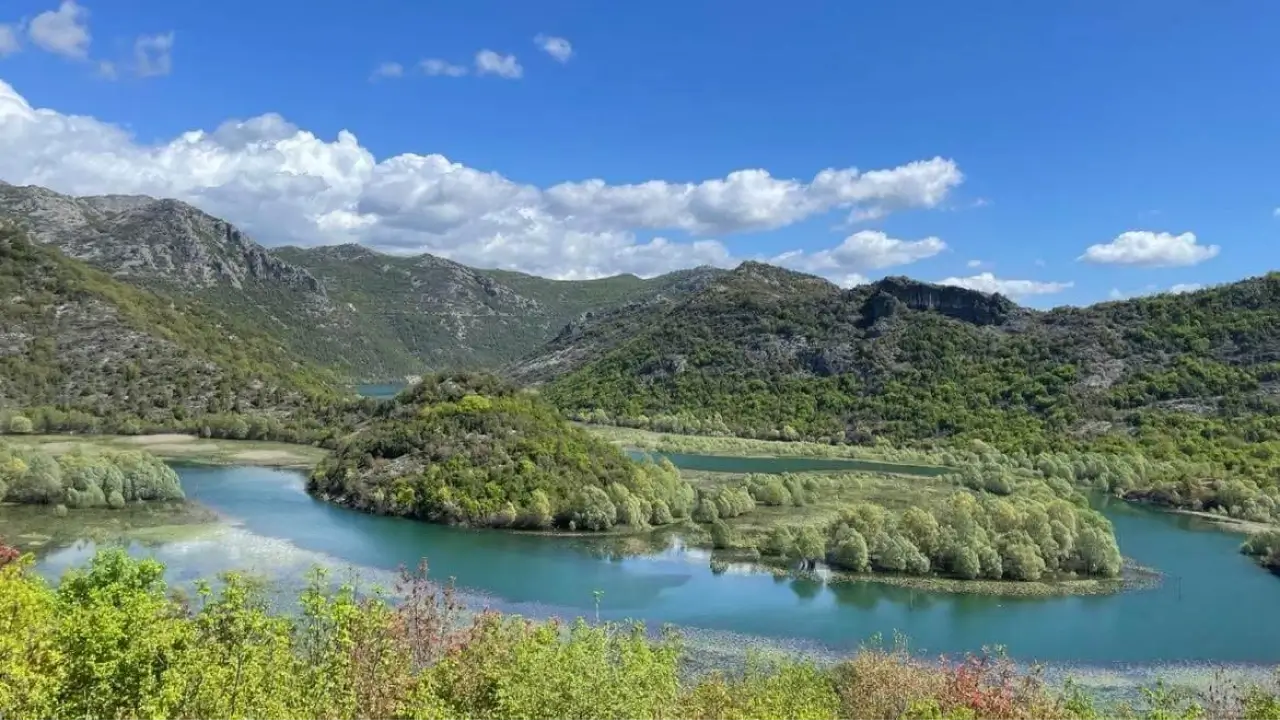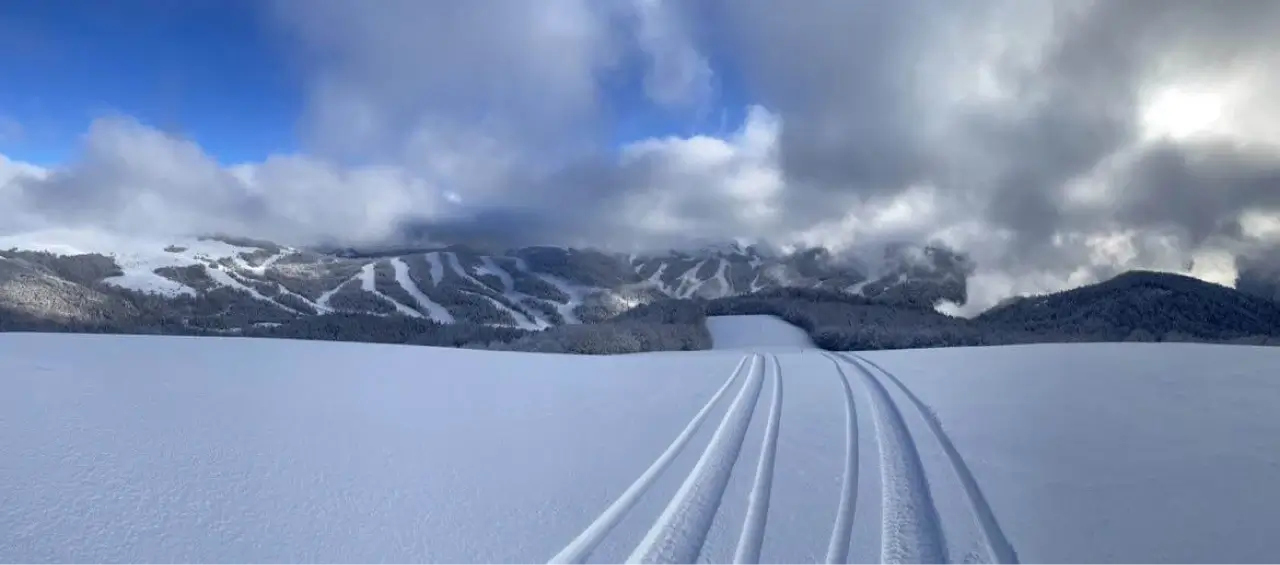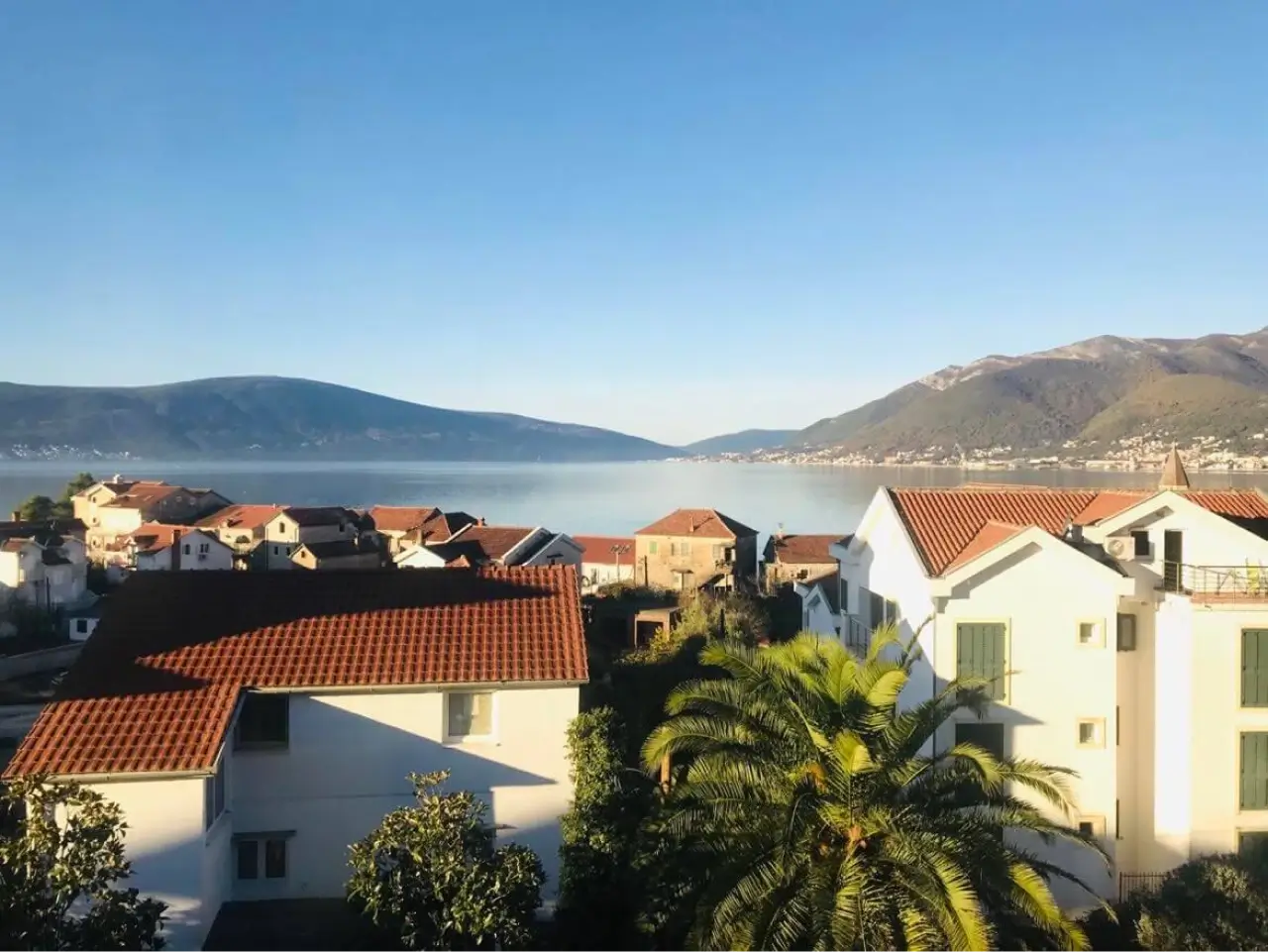“The country is a photo zone. You have no right to be in a bad mood here”: features of life in Montenegro
Three hours between the sea and the snow, the way of life — polako. Apartments can be left unlocked when you go for chivapchichi. Valeria Kulbak, deputy director of the Terra Group event agency, told the Anywhere Club blog about the pros and cons of life in Tivat in her own words.

— There is nothing more eternal than the temporary. On August 7, 2020, my family and I ended up in Montenegro, naively believing that the trip would be short-term. We settled in Tivat, and planned to move to another city but, after travelling the whole country in two years, we realized that this is the most optimal place in terms of infrastructure and location.

No language barrier
— One of the reasons we chose Montenegro for relocation was the similarity of Montenegrin to Russian and Belarusian. If you speak either of these languages, you will easily communicate with the locals.
10 years ago, we stayed in Montenegro, and almost no one knew English here, but everyone understood Russian very well. Now, the situation has changed somewhat. I mostly speak English but in two years I also picked up enough Montenegrin to keep up a conversation in a store or the market.
Open-minded people
— People in Montenegro are open minded, sociable, and not in a hurry to go anywhere. The country is small — everyone knows each other. When you go out for a walk with the dog in the evening, everyone greets you. One of the first words we learned in Montenegro was polako — translated as "smoothly, not in a hurry." That's how they live. In Minsk, I had a completely different, frantic, rhythm. Now, looking back, I don’t understand how I did it.

Up to 15,000 people live in the largest cities of Montenegro. Decisions are made based on personal communications and communication within the community.
Internet technologies here are not as developed as in Belarus. You can’t just go to an online store to buy something. First, they have very few sites here, and second, you need to find them. As a result, in order to find the things and services that you need, a community is formed around your family. For example, you need to buy a car. So, you search through your friends who might be able to help. Then it turns out that you and the seller have some common interests, and you begin to communicate. People here are ready to maintain communication with you not just on the request that first brought you to them, but also to develop the communication and relationship further, to bring families closer.
In the summer season in Montenegro, you can find many places for entertainment, but in the winter the country is in hibernation, and people just visit each other. This is when it is very helpful to have created a community for yourself and your family.
Diverse nature
Montenegro is not about developed infrastructure, but about enjoying nature. Although the country is small, it is located in different climatic zones. On the coast, it can be +35 in the shade, while at the same time in the northern part of the country there may be places where the snow has not yet completely melted. The route by car from the coast to the north takes 3–4.5 hours. On the other side of the country, there is a completely different sort of nature, a different landscape, a different architecture. This is cool! At any moment, you can hop in your car and go to a smaller version of Switzerland. Rest on the sea, swim in the lakes, hike in the mountains, explore the numerous old fortresses, go rafting, ride ATVs or horses - the choice of leisure in Montenegro is very diverse.

Quality food
— In Montenegro, the large number of elderly people who look healthy and fit is striking. I attribute this to good ecology and quality products. Our family tries to buy everything from local farmers, who do not have money for expensive fertilizers and additives. There are many imported products here, but dairy and meat products are mainly from local, small-scale industries. Even in an ordinary store, homemade eggs will be sold. We have a joke here: in Montenegrin, the word for a tomato is “paradayz”, and so my friend’s husband, when he eats tomatoes, says that this is a real paradise.
But buying the products you like or are used to can be tricky. For example, a friend recently relocated, and I helped her go through the adaptation period. We went together for groceries. In Minsk, you are used to going to the hypermarket for shopping, and buying everything there in a single place: meat, fish, milk, groceries, fruits, vegetables. You don't have to go from shop to shop. Here, to buy a grocery basket of your favorite products, you need to visit several places. When my friend and I went shopping, first we went to a hypermarket, then to a fish store, after that to the market for vegetables and fruits, then we looked at the bakery for bread, and also visited a Russian store to find our usual products. As a result, shopping for groceries takes 2.5 hours, and it’s hard for you to do it without a car. This does not mean that you can’t find a basic set of products plus vegetables and fruits in the convenience store. It's just that if you like a certain type of product, or a special brand of cheese, for example, you might have to travel farther afield for it.
Local cuisine is aimed at meat lovers. Among the popular choices are meat under sach (long-stewed meat cooked in an oven under pressure), splash (large cutlet), and chevapchichi (mini-kebabs).
One of the first and best ports in the country, Porto Montenegro, was built in Tivat. Everything here is geared toward foreigners, and you can easily find European cuisine. Dining in a cafe costs 15-20 euros per person. It’s about the same prices for breakfast. A trip to a good restaurant for a family of two adults and a child will cost 100-130 euros (generally without alcohol). Prices on the coast, of course, are higher than in the north.
You need a car
— I can’t imagine how you can live in Montenegro without a car. To buy something good, get a quality service, go to the doctor, go to school, etc., you often need to go to another city. This can take some getting used to. For example, my doctor is in Podgorica, the capital, but it takes an hour and a half to get there by car. Probably, in Minsk, I would have spent the same amount of time during rush hour to get from one part of the city to another. But here, in that hour and a half, I cross not a single city but several cities. Also, my child studied in Budva, which is a 40 minute drive from our home. Infrastructurally, the country is not yet highly developed in all areas. If you need to find a particular kind of service, you can probably do it, but you can’t count on the fact that it will be at your fingertips or even in your city.

Two logical questions arise - where can you get a car and what do you need in order to do so? By law, there are restrictions on how much you can drive using the international rights of your previous country and that indicate when you must switch to a local authorization. But no one is following this.
You can bring your car from home. There are movers here to help with that. Formally, as with your driving rights, there are restrictions on how much you can drive without local numbers on your car but, in fact, no one cares. And bringing your car from home is much more convenient than buying one here. When you buy a car here with a residence permit, which needs to be renewed every year, you automatically register the car for a year too. And then every year, you need to renew not only the residence permit, but also the documents for the car. On the license plates of such a car there is a code that shows that the owner is not a resident of the country, and this code can be seen from a kilometer away. We were scared that with this code on our car, they would stop and check our documents more often, but that has not been the case. Many people buy cars in Estonia, which is not far from here. They import cars with Estonian license plates and do not re-register them for Montenegrin ones, so that later, they can safely ride around Europe. You can consider renting a car, but prices go up quite a bit during the season. If a Volkswagen Polo 2015 with an automatic transmission costs 300 euros in winter, in the season it will be 900 euros.
High security
— I love Montenegrin news. It is another reason to smile. You open it up and read that a bear cub was seen in some town, and local rescuers helped return him to his mother. Or you will read something like: dear Montenegrins, be careful on such and such section of the road, wild boars are migrating there. Of course, the news is not all light-hearted. You may see some news relating to drug trafficking, as there is a large port in Montenegro, but generally nothing more of a criminal nature.
As a result, many people do not lock their apartments or their cars. People here respect and place a lot of value on private property and that makes it feel safe. My child goes to all the extra classes on his own and returns home at night, and I'm not worried. It also helps that Montenegrins love children very much. If I go to the market alone and buy a kilogram of strawberries, then it will be one kilogram of strawberries, and if I go with my son, then they will give me another half a kilogram on top for free.

Two downsides
There are only two minuses in Montenegro — medicine and education.
There is almost never an ambulance available to come to your house here. It would only happen in the most extreme case. If you get sick here, then you have to get yourself to the doctor. Let me remind you that the doctor you need may be in another city. If serious medical interventions are needed, many prefer to go to Serbia, since the material and technical aspects of medicine are not well developed in Montenegro. At the same time, however, very responsive and empathic people work in the field of medicine, and they will smile at you, listen to you, and immerse themselves in your questions.
The Montenegrin education system is also very weak. Children enjoy going to school because they are not particularly stressed there. They study for 12–13 years, 9 of which consist of secondary schooling and then 3–4 years are gymnasiums or colleges, after which teenagers can get their first lower-skilled job. In Montenegro, there are private Russian and English schools, as well as a French school at the Belgian embassy. The schools do not give homework, everything is focused on project work. It is difficult for me to understand what can be learned in such an education system. There is a very high turnover rate of students in the schools, since many consider the country as a stopping point while they are in transit: they arrive, live for a couple of years, and move on. Perhaps lightweight educational programs reflect the transitory nature of the students - a new child can immediately join the educational process without difficulty regardless of the education system in their prior country.
On the whole, I really like Montenegro. I tell everyone that Montenegro is a photo zone country. You just don't have the right to be in a bad mood. You wake up, look out the window, and a smile appears on your face by itself. There is a lot of greenery around all year round. On the coast in winter, it is +10 - +15, but then you get into the car and, after three or four hours, you are already in snowdrifts in the mountains. When you tire of snowdrifts - you can return to the coast. That is the benefit of this very beautiful, friendly and compact country.

.png)
